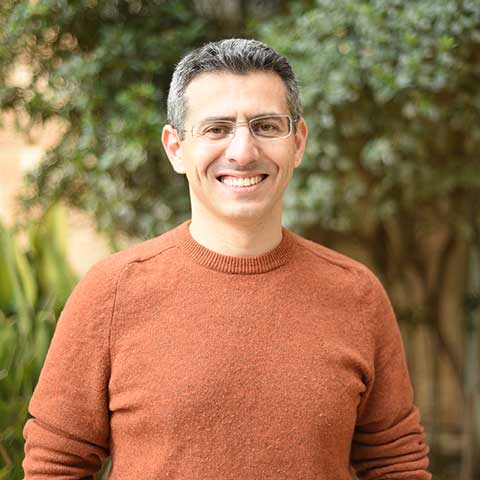
It is well known that sleep apnea, a condition where breathing repeatedly stops and starts during sleep, can cause weight gain and lead to obesity, along with resistance to insulin and thus an increased risk for developing diabetes. Now, new research suggests that it is sleep apnea’s oxygen swings themselves that may contribute to the problem.
A recent prestigious grant from the American Thoracic Society Foundation awarded to Hadassah pediatric pulmonologist and sleep disorder expert Dr. Alex Gileles-Hillel will enable him to study how reversing the dysfunctional metabolic effects induced by oxygen swings could result in making the fat less resistant to insulin.
“The results of our study could shed light on the mechanisms of metabolic disease in sleep apnea patients and in other patient populations with unstable breathing during sleep, such as chronic obstructive pulmonary disease (COPD) and other chronic lung diseases, allowing development of new therapeutic approaches,” says Dr. Gileles-Hillel.
Mild sleep disorders are common. As many as one billion adults experience the classic signs—snoring, shallow breathing (hypopnea), or even brief cessation of breathing, or a partial blockage of the airways. For most people, the effects aren’t serious and treatment with medical equipment (CPAP machines) can improve symptoms.
Sleep apnea with prolonged pauses in breathing is more extreme and has become the subject of increased interest from a range of doctors and scientists. Pulmonologists are keen to learn about the interplay between sleep and the lungs. Psychologists treat patients with anxiety or cognitive issues resulting from sleep disorders. Neurologists deal with stroke, Parkinson’s, and Alzheimer’s patients who have sleep issues. Dentists provide devices to help keep upper airways open.
“Men and women with sleep apnea put on weight, and larger persons have more sleep apnea,” says Dr. Gileles-Hillel. “We want to learn which is the cause. Sleep apnea negatively impacts the degree of control diabetics have on their disease. We need to understand the mechanism and try to fix it.”
Dr. Gileles-Hillel’s research is one of the scientific projects at the recently dedicated Wohl Institute for Translational Medicine at the Hadassah Medical Organization.
Learn more about the Hadassah Medical Organization.









